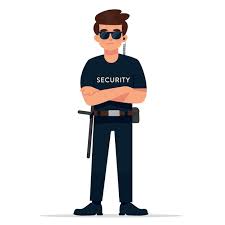 April 2024
April 2024
Condominium corporations have a responsibility to ensure the building they manage is reasonably safe. This does not mean they are responsible for the safety and security of building occupants.
Condominium corporations tend to accept responsibility for more security than required. Enhanced security promotes a feeling of safety. It helps to protect common areas and personal living space. This enhanced security is not a requirement unless stated in governing documents.
Condominium corporations have an obligation to take timely action to resolve safety issues that come up which can include lighting, locking outer doors and maintaining security gates. There is an obligation to inform residents of known safety concerns. When these basic requirements are considered inadequate or inferior, security precautions can be enhanced.
Enhanced security measures may include video security, sophisticated electronic fob or card systems, in-suite security systems and security staffing. Once added, the corporation has an obligation to maintain this additional security to a reasonable standard.
Two anesthesiologists were murdered in their South Boston condominium in 2017 by a former concierge in the building. The corporation was found to have failed “to exercise due care for the residents’ safety in those areas under the association’s control.”
While risk cannot be eliminated, it can be reduced.
Community Risks
It is not uncommon in condominium communities to find the garage security door and gate left open so anyone can access the parking area. Doors to the building may not close and lock. Stairwell doors to the outside may not close and lock as they should allowing anyone to gain access to a building through a doorway not monitored by security cameras. Anyone can walk into the building, make their way to any floor and commit crimes without being monitored.
Condo boards can err by not sharing important information with residents. Someone breaks into the building, enters one or more spaces and steals items or causes damage. Rather than inform residents of the security breach and how internal security has possibly been enhanced, thus giving residents an opportunity to implement their own safety or security precautions, the board or management chooses to remain silent. Perhaps they feel this is a prudent approach to avoid overconcern or panic. This certainly causes less work for the board and management in that they don’t deal with resident inquiries. What they have done is deprive residents of important knowledge.
If the board’s actions prove ineffective at preventing future problems, it may be that as with the South Boston deaths, the corporation has failed “to exercise due care for the residents’ safety in those areas under the association’s control.”
Share What You Know
Failing to share known security risks with building residents deprives them of the ability to make informed decisions. The corporation may have inadvertently taken on additional security obligations by failing to protect residents and depriving them of knowledge of the extent of their risk.
Security is a Shared Responsibility
 Condo residents should be reminded that their security is a shared responsibility. Residents should keep their unit doors locked, refuse building access to unknown individuals, and inform management or security when unknown individuals are seen entering or wandering through the building.
Condo residents should be reminded that their security is a shared responsibility. Residents should keep their unit doors locked, refuse building access to unknown individuals, and inform management or security when unknown individuals are seen entering or wandering through the building.







